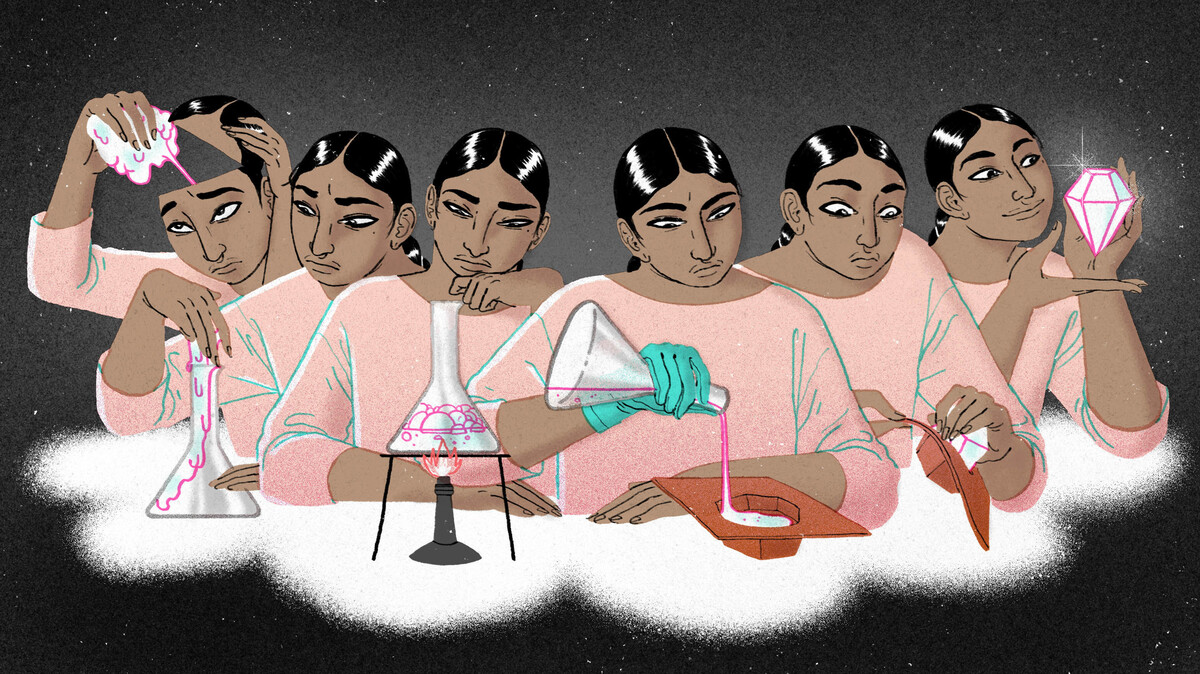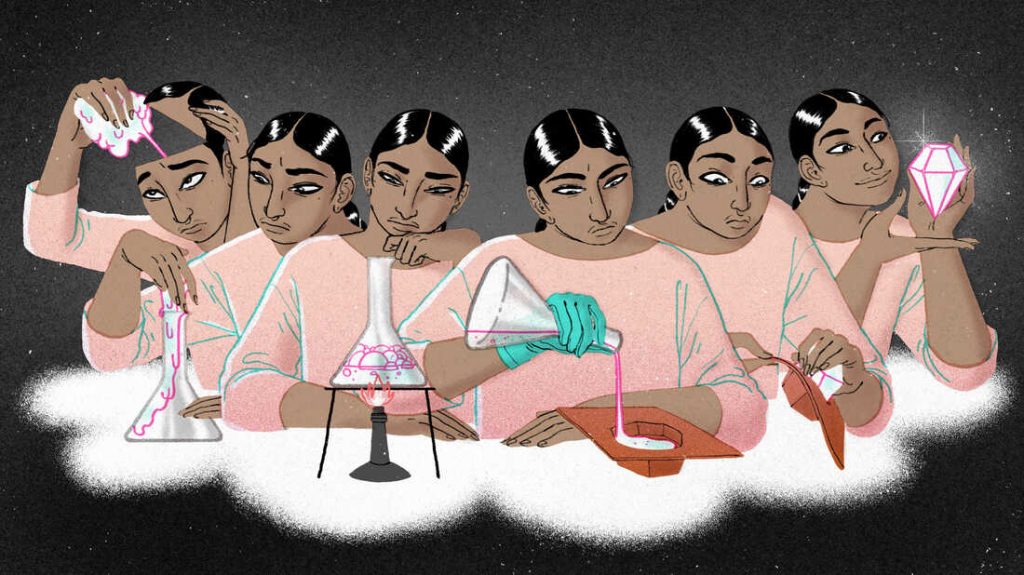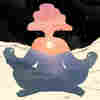

Jasjyot Singh Hans for NPR
Anxiety can feel like the enemy. However it shows up — a tightness in the chest, a knot in the stomach — it’s easy to want to obliterate those feelings.
But according to Wendy Suzuki, that might not be the best approach.
“Anxiety evolved to help protect us,” says Suzuki, a professor of neural science and psychology in the Center for Neural Science at New York University. “We need to recalibrate our level of anxiety to get it back to that level where it is superprotective for us.”
Suzuki wants us to make friends with our anxiety and reap all the gifts it can offer.
In her new book, Good Anxiety: Harnessing the Power of the Most Misunderstood Emotion, Suzuki outlines strategies to turn that sinking feeling into something productive. Anxiety, she says, is trying to give us information about what we appreciate and what we value in our lives.
“And that is where the good anxiety lives,” says Suzuki.
A quick note: Suzuki says these strategies are best for what she calls “everyday anxiety,” not necessarily clinical disorders.
“[This book] was written as an invitation to really talk about and deal with anxiety that can come with so much shame and embarrassment,” Suzuki says. “Let’s approach it and start to really think about new ways to approach it.”
Suzuki spoke with NPR’s Life Kit about how we can use emotional regulation when faced with anxiety-inducing situations, positive coping strategies that can help and the upside of anxiety.
This interview has been edited for length and clarity and includes some web-only content.
Interview Highlights
Meghan Keane: You write about something that seems to be a big task, but it does seem doable: emotional regulation. What is emotional regulation, and how can we use it?
Wendy Suzuki: Emotional regulation is creating techniques to get you to an emotional state that is productive for you. And often that means getting yourself out of the deep state of anxiety that can happen from various situations. Here are my top two immediate relief approaches to those feelings of anxiety. Number one: deep breathing.
It always comes back to deep breathing.
It comes back to deep breathing. It works because it activates the parasympathetic nervous system. That is an immediate soothing mechanism that you could even do in the middle of the conversation. Tip number two comes from 10 years-plus of research in my lab and other labs that show the transformative power of moving your body on both your cognition and your mood. Moving your body, getting your heart rate up a little bit with just a walk … can have an immediate effect on your anxiety levels. [It] stimulates the release of dopamine, serotonin, noradrenaline in your brain. I like to say it’s like giving your brain a wonderful neurochemical bubble bath.
What are some positive coping strategies to deal with your mindset?
I like to encourage an exploratory kind of mindset, and then we come to the [anxiety-provoking] situation itself. … What do you do if you get anxious during the actual event? Continue to kind of try to use that deep breath to calm yourself. The other thing that you can do is distract. Imagine a little kid that you’re in charge of and there’s a big scary dog over there. And instead of having them look at this big scary dog, you try and have them look someplace else. The third thing is preparation. Prepare with somebody else. Have them go over the questions that they might ask you. Have them ask you the hardest questions in the situation that they can think of and practice, practice, practice getting comfortable.
Let’s go a little bit more into the upsides of anxiety. What are the gifts of anxiety? What can it do for us?
Number one is a gift of productivity that comes from anxiety. So often anxiety kind of shuts us down — we can’t focus. However, here is a gift that can come from your anxiety, and that is that “what if” list that comes with your anxiety. What if I don’t know the answer? What if they ask me about this part of the book and I can’t remember the study? Everybody can turn your “what if” list into a to-do list. It’s satisfying because, again, going back to evolution, our stress response and the anxiety response evolved to be resolved with an action. Our stress is getting our muscles active to do something to take some action.
You talk about this concept of supercharging resiliency as a key to transforming anxiety into good anxiety. How can someone build up that muscle when they feel like their everyday anxiety is flaring up?
Mindset is so powerful and can be the difference between being beaten down by anxiety or being able to use that to build your resilience. The secret is to approach every single anxious situation with an activist mindset. That allows you to think, “What are some of these different ways that I can approach it?” People that are given stress-inducing situations where there’s at least one way out of it — that makes them more resilient. That builds up what’s called stress inoculation. You learn something, [so] that can go into your resilience piggy bank. But if you end up coming out of these situations [saying,] “Oh my gosh, I don’t know if I’m going to get through the next one,” that will not help you. But we can build resilience instead of tearing it down.
How much of getting the benefits of good anxiety is about being adaptive and just trying new things?
It’s hard to think about all of these negative emotions sometimes … but I found so much value in taking a moment to ask: What is that fear from? Why do I have this prickly feeling? The thing that surprised me most is I realized that I was making friends with my own anxiety. I never thought I would do that. It’s not one of those cuddly, warm, fuzzy friends. It’s kind of a prickly friend. They’re valuable because they tell you like it is.
If you lean into those emotions, it really does allow you to have a more fulfilling, more creative and ultimately less stressful life.
The podcast portion of this story was produced by Clare Marie Schneider, with engineering support from Kwesi Lee.
We’d love to hear from you. If you have a good life hack, leave us a voicemail at 202-216-9823, or email us at LifeKit@npr.org. Your tip could appear in an upcoming episode.
If you love Life Kit and want more, subscribe to our newsletter.





